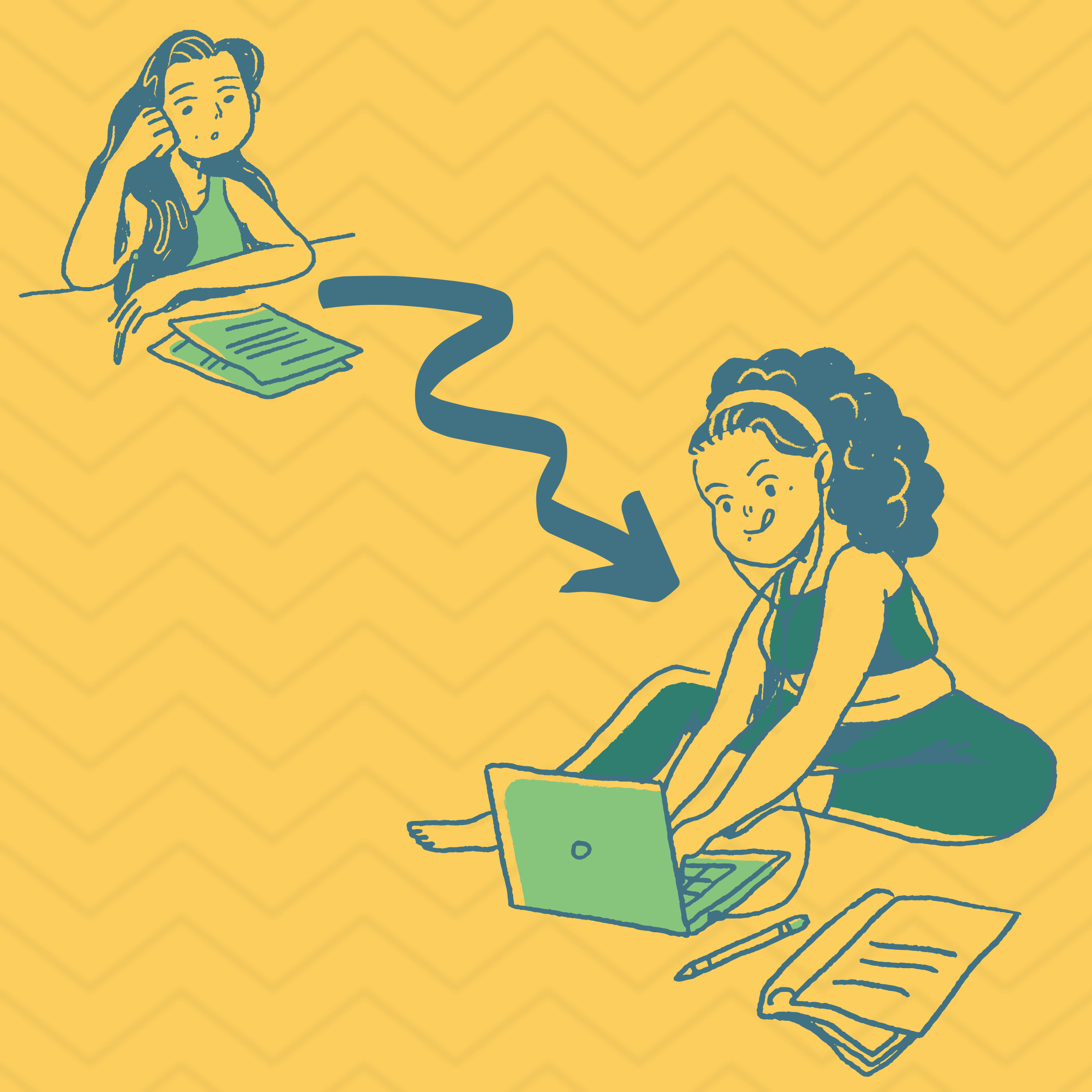
Graphic by Ben Berman
As students, we are constantly on the move as we rush to early classes, get ready for late nights and keep up with endless plans in between. Among all of these daily stresses, academic stressors such as midterms and finals can hang over the heads of students. While it can be a struggle to maintain a general sense of well-being in the midst of it all, the implementation of simple lifestyle changes can go a long way in improving both mental and physical health.
Start a daily journaling routine
Journaling is a helpful method to organize tasks and plans, as well as destress and debrief. Journaling routines can look different for everyone, but a great place for anyone to start is bullet journaling. Bullet journaling focuses on organization by keeping to-do lists and activity logs along with both long and short-term goals. This type of organization cuts down on extra stress by prioritizing tasks and keeping track of schedules.
Gratitude journaling is another great way to tackle stress. This can be as simple as writing down three things you’re grateful for each day, no matter how big or small. Focusing on gratitude provides a number of mental health benefits, including a better mood, lower stress and enhanced empathy.�
Learn to say “no”
In college, there are constantly events to go to, things to do and places to be. The rush of activity is intoxicating, but it can also be exhausting. As important as it is to get involved and have fun, sometimes the best answer isn�t always yes.�Pay attention to what your body and mind need on a given day. Are you choosing to go out because you genuinely want to, or is it because you�re scared of missing out? Turn off autopilot, and consciously pick what will best serve you, regardless of what other people are choosing.
This also applies to deeper responsibilities like school and work. Mental health can often end up on the back burner when it comes to tackling more pressing responsibilities, you can read more on this here at https://www.numan.com/, but it�s just as important to prioritize it here, too. If you find yourself burnt out and overcommitted in your work and student life, learn to say no here as well. A finished task or an A+ on an assignment should not take priority over mental wellness.
Be mindful of what you consume
What you fill your body with is incredibly important, whether it be consuming enough fruits and veggies or cutting down on processed food. The same rules apply to your mind. The things you listen to, hear and tell yourself are incredibly important factors in keeping up with your mental health. Choose to listen to uplifting podcasts on your walks to class or during study breaks. Notable podcasts that prioritize well-being are The Ed Mylett Show, The Happiness Lab or The Mindset Mentor.�
If you�re not into podcasts, tune into your playlists. Are the songs you�re listening to making you happy, or perhaps making you even more anxious or melancholy? Listen through your music and add in some upbeat songs to create a more motivating set of songs. Finally, pay attention to the words around you. The people and communities you surround yourself with are incredibly impactful. Toxic relationships are very real and incredibly draining. If you notice a negative change in your behavior and thoughts around certain people, create some distance. Make sure your friends are investing in you and helping you grow, not tearing you down.�
Don�t let negatives hold the power
�If you constantly harp on negatives they will take over, seeping into your relationships and situations and even your view of yourself. Be aware of what thoughts you�re giving power to and actively shift your thinking. It can be incredibly difficult to find the positives sometimes, but try to find just one thing per day that you can take joy in. Maybe it�s the simple victory of making it out of bed or the small joy of your favorite ice cream. The smallest joys sometimes have the greatest power. Above all, give yourself grace, have a good time and commit to doing whatever makes you feel the absolute happiest and healthiest you can be.
Contact CU Independent Staff Writer Bailey Diamond at Bailey.Diamond@colorado.edu.
